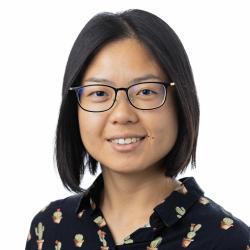Biography:
I studied biomedical engineering for my bachelor's degree at Southeast University in Nanjing, China. During my senior year, I interned at BGI-Shenzhen, where I began to extend my knowledge of bioinformatics by working on the genomics of plants, such as the ginkgo tree, and animals.
During my Master's at the same university, I had the opportunity to start exploring the formation of algae blooms by characterizing the compositions of the bloom-forming microbial communities in Lake Taihu. Using metagenomics, we found that complementation in bioprocesses, such as nitrogen fixation, between cyanobacteria and their physically attached microbes contributes to the formation of aggregates.
In 2017, I moved to Germany for my PhD at the Max Planck Institute for Plant Breeding Research. There, I applied and developed computational tools to help us understand host-microbe interactions. Specifically, I focused on unravelling the complex relationships between plants and the microbes living inside and in the immediate vicinity of their roots.
Research interests:
In Patil Lab, we study the interactions between the gut microbiota and xenobiotics we and our microbiota are exposed to. As a computational microbiologist, my role is to understand the genetic variation and diversity of gut microbiota. I am particularly interested in untangling the complex environment-gut-microbe interactions through the lens of ecology and evolution.


